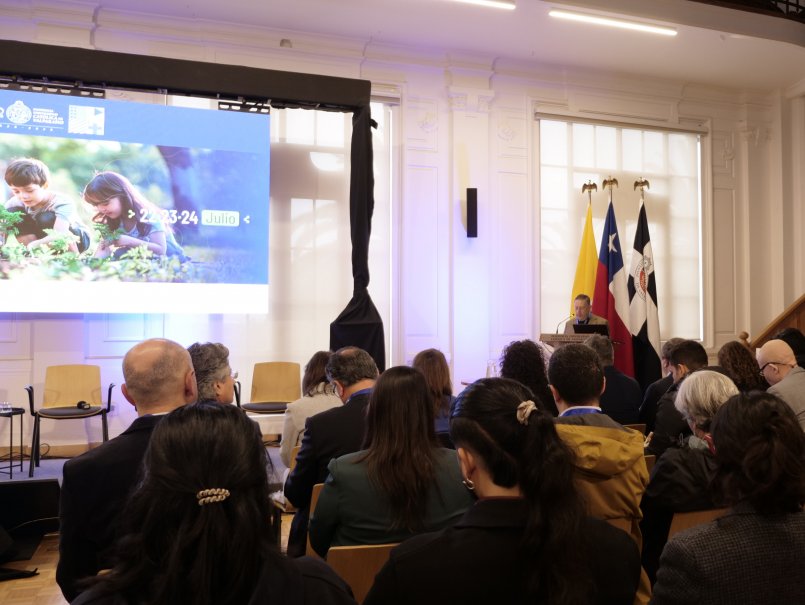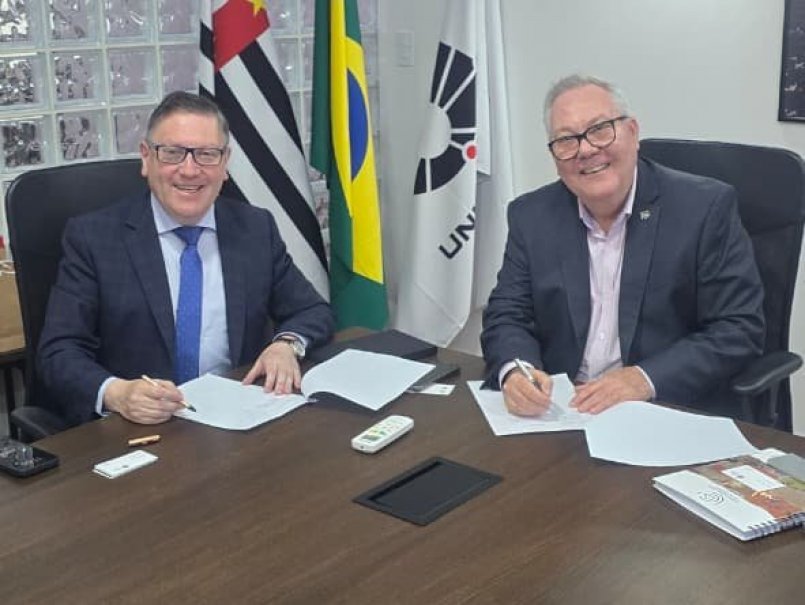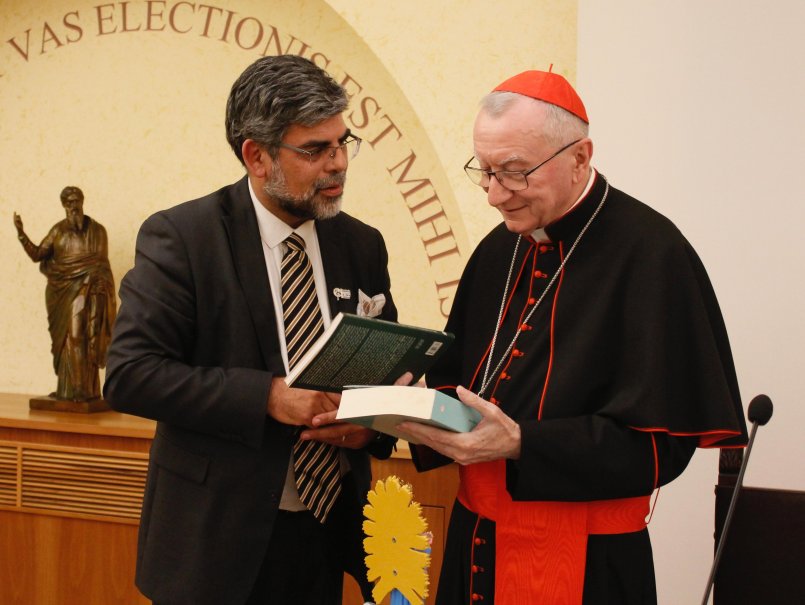
In agreement with the guidelines of its 2023-2029 Institutional Strategic Development Plan related to sustainability, public vocation and its mission to change the life of people, the Pontificia Universidad Católica de Valparaíso held the “2025 Biofuture Summit”, an international conference that promotes circular economy and sustainable innovation in Ibero-America.
New ways of valuing organic waste, emergent technologies for the development of sustainable biorefineries, waste management strategies in agricultural industry and the use of tools such as the Life Cycle Analysis (LCA) to encourage more clean and efficient processes, were some of the topics addressed during this activity that gathered representatives from ten Ibero-American countries.
The conference was organized by the Núcleo Biotecnología Curauma (NBC) of the PUCV, the Biofuture Network from the CYTED, the Universidad Autónoma de Barcelona (UAB), and the Impact and Innovation Network, AIDIS, with the support and co-funding of CORFO, through the Viraliza Eventos instrument.
As explained by Rolando Chamy, director of the Núcleo Biotecnología Curauma of the PUCV, Biofuture is an event that seeks to bring entrepreneurs closer to the scientific community and scholars to the new bio-economy concept in order to evolve from an economy based on fosile fuels to one that is nature-based.
“From its origins at the NBC we have worked with waste appraisal, bioprocesses and circular economy. We have been pioneers in matters such as climate change mitigation, circular economy and creating projects with social impact”, Chamy emphasized.
At the same time, rector Nelson Vásquez highlighted the fact that “our university has a great responsibility to our region. Networking, collaboration with industry, the development of an Innovation and entrepreneurship ecosystem are very important to move forward in complexity and developing applied research. Establishing international networks that will allow us to get to know other projects and ways in which to address certain issues, as well as establishing a close relationship with the industry, is fundamental to collaborate in the development of our region, so we will continue to support the work of the NBC”.
International Experience
During the conference, María Eugenia Suárez, professor at the Universidad Autónoma de Barcelona and coordinator of the CYTED Biofuture network, delivered a presentation about biotechnological alternatives to use waste, where she highlighted the challenges faced by circular economy and the change in paradigm from only treatment and waste management to a true circular economy.
“The challenge of implementing a true circular economy requires collaboration between various actors: scholar actors, actors that develop these technologies and take them to the market, and government actors, because without their support, without appropriate legislation strategies or even tax incentives, this is all very difficult to implement. But even more, circular economy is a global challenge and what a better framework than Ibero-America to address this challenge”, the scholar added.
In turn, Macarena Rosenkranz, Innovation Director, expressed that this conference is in line with the institutional strategic objectives of the university regarding propelling innovation and the internationalization of research. She added that “Sharing these experiences with our international guests allows us to see clearly what the trends around the world are, and of course, bioeconomy is one of those trends. Through the work of NBC, we want to continue to contribute to circular economy and have an impact on global issues”.
The Biofuture Summit included keynote lectures, conversation panels, networking sessions, masterclasses and spaces for connection, where attendants got to know concrete experiences and explored collaboration opportunities between actors at the regional level.
By Erika Schubert
Strategic Communications Deparment



